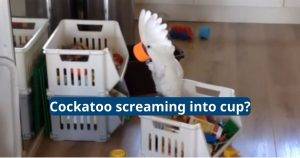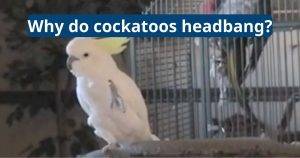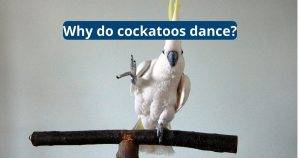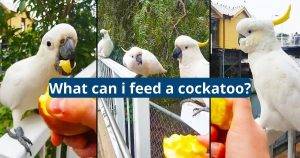How to Bond With Your Parakeet?
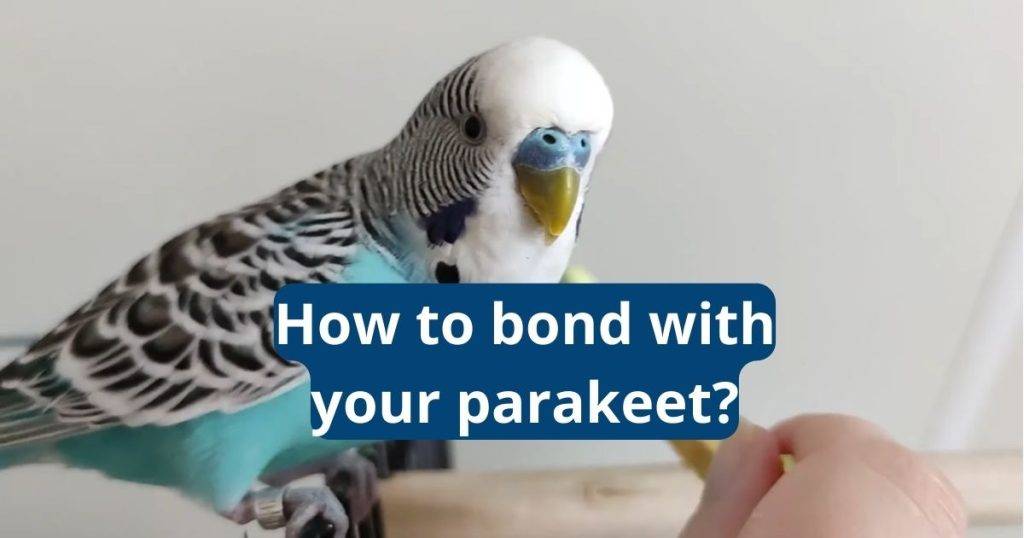
A parakeet will be much more comfortable with you if you spend time with him or her outside of their cage. They will also be able to follow simple commands and interact with their environment in a more natural way. A tamed parakeet can even be trained to do tricks! It just takes a bit of patience and the right approach.
Spend Time With Your Parakeet
A parakeet will need at least an hour of your time a day to bond with you. Ideally, this time should be spent with only your budgie and no other distractions like TV or the radio.
Getting your budgie to trust you will take some time, but once they feel comfortable with you they’ll be more likely to interact with you outside the cage. When they’re ready, try finger training to get your budgie used to holding onto your finger. This is a fun way to train your bird and they’ll love you for it!
Remember, if your bird is having a hormonal surge (usually during mating season) they may be harder to work with. They’ll probably be territorial and broody, which can make them difficult to tame or to train. Taking them to a specialist avian veterinarian can help to calm their fears and get them back to being tame. A vet will also check for any injuries or health issues that could be causing them to act differently. They’ll prescribe the best treatment and you can get your budgie back to being tame.
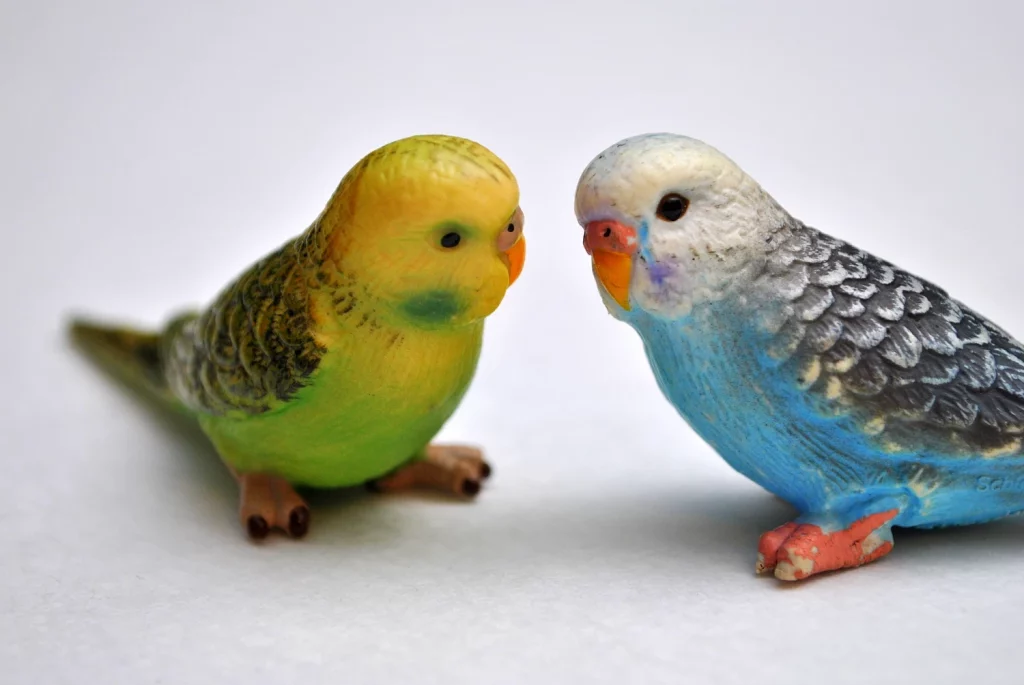
Offer Treats From Your Hand
It can be a challenge to get a parakeet (also known as a budgie) comfortable around you, but if you spend the time doing it right, you’ll have a great bond in no time. Start by sitting quietly by their cage and talking softly to them, offering bits of spray millet from your hand and introducing them to other members of the household.
Once they are comfortable, start reaching your hand into their cage gently and holding it there for a while. Doing this a few times a day will allow them to become accustomed to the feel of your hand and trust that it won’t hurt them.
You can also try grooming them as they do with their flock members. This can help them to trust you as a part of their family and may even make them more accepting of handling. This can include scratching their head, stroking their back or belly. It’s important to be gentle as birds are delicate creatures.
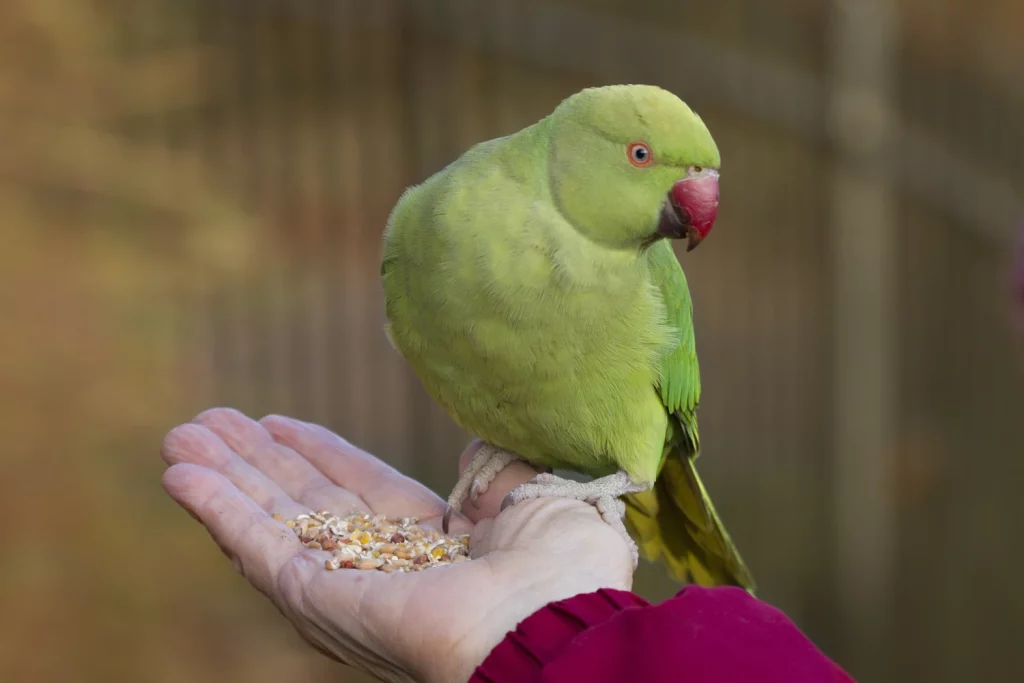
Talk To Your Parakeet
You should talk to your parakeet often. This will help you bond with it. If you are comfortable talking to your bird, then it will be more receptive to learning tricks from you.
Try to speak in a happy and energetic voice when you are talking to your parakeet. They respond to a lively voice more than they do to a monotone or whisper. It’s also important to teach your budgie a variety of words so that it will be able to distinguish your voice from others in the household.
For example, say hello to your budgie when you are coming and going from the room, as well as when you’re refilling the water dish or food. You can also use simple words like “hello,” “goodnight,” “soon,” and “I love you.” It’s best to start with one word at a time, and move on to phrases once your budgie knows how to repeat the word. Some budgies will learn words much faster and easier than others. Young males are known to pick up on speech much more readily than young females, for instance.
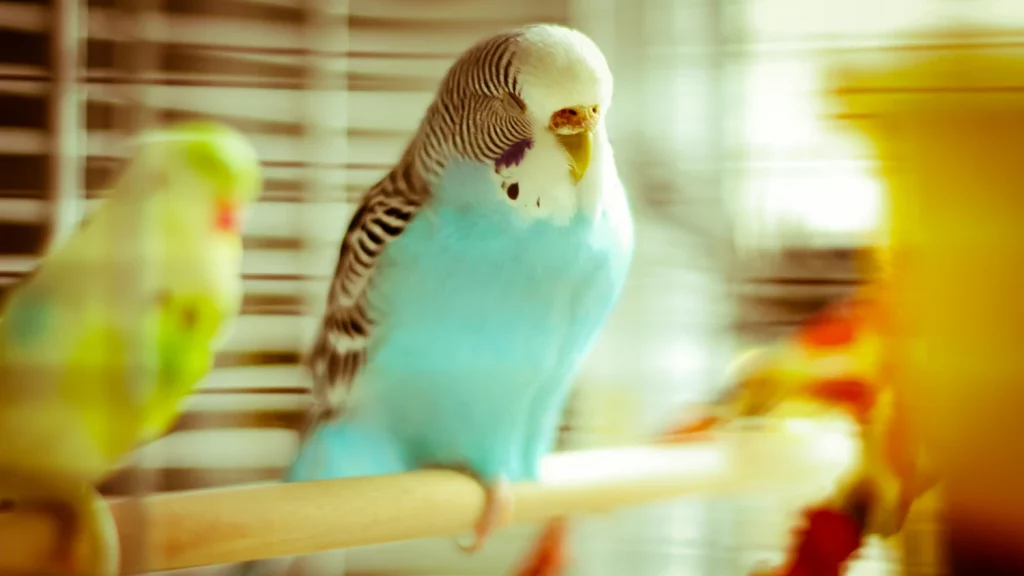
Play Games With Your Parakeet
Playing games with your parakeet can be a great way to bond with it. Try out some simple games and toys that you can make at home, like paper foraging toys or even just bottle caps, and see which ones your budgie responds best to. They are also quite fond of music, so singing and playing instruments can be fun ways to get them to interact with you.
Just be sure to start with a calm and quiet time of day and be patient with your bird. You want to make sure it feels safe and is comfortable around you, especially since in the wild budgies spend their lives with their flock. Also remember that a lot of times they will react with fear at first, as this is just their natural reaction to something new that looks bigger than them in the beginning. But if you keep talking and playing with them, they will eventually learn that your hand can be trusted and they will start to interact with it. This will lead to them stepping out of their cage perched on your finger and you can build up trust with them this way.
Give Your Parakeet An Exit
When your budgie feels comfortable with you in his presence and has built up trust, you can begin to take him out of his cage for longer periods of time. This out-of-cage experience is enriching for the bird and helps him bond with you as he gets to know you as a safe place away from his cage.
Before attempting to get your bird out of his cage, close all doors and windows in the room where you have him. Leaving a door open can cause him to fly out into the home and become scared or overwhelmed, possibly returning to his cage for safety.
Keep in mind that a parakeet is not used to being out of his cage and may attempt to bite at first. This is not aggression but an instinctive reaction. Do not let him bite you, but instead calmly move him to a new perch or your hand. In time, he will learn to step onto your finger for treats without biting and will eventually learn to perch on your finger by himself.

